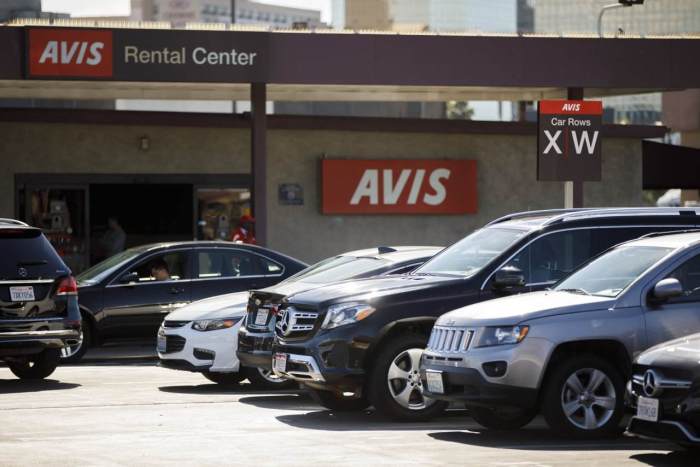
Monthly car rental rates can unlock a world of convenience and flexibility, making it an appealing option for those in need of a vehicle for an extended period. Whether you’re relocating, on a business trip, or simply prefer the freedom of a rental, understanding the nuances of these rates is essential. Here, we’ll dive into the factors that influence these rates, average costs for various vehicle types, and how long-term rentals stack up against short-term options.
From the influence of car insurance on your monthly costs to tips on choosing the best rental service, we’ll cover everything you need to make an informed decision. So buckle up as we explore the ins and outs of monthly car rental rates!
Understanding Monthly Car Rental Rates
Monthly car rental rates vary significantly based on several key factors, which can influence the overall cost and the value you receive. Understanding these factors can help you make informed decisions whether you’re renting for personal use, business travel, or long-term needs. Several factors come into play when determining monthly car rental rates. These include the type of vehicle, rental duration, geographical location, demand fluctuations, and the rental company’s pricing strategy.
Each of these elements contributes to the final cost you may encounter.
Factors Influencing Monthly Car Rental Rates
The different elements that affect monthly car rental rates can be categorized as follows:
- Type of Vehicle: Luxury and specialty vehicles generally command higher rates compared to economy cars. For example, a compact car may average around $300 per month, while a luxury SUV could exceed $1,200.
- Rental Duration: Typically, the longer the rental period, the more economical the rate becomes. Monthly rentals often provide significant savings over daily or weekly rates.
- Geographical Location: Rental prices can vary greatly by region. Cities with high tourist traffic or limited transportation options, like New York or San Francisco, typically have higher rates.
- Seasonal Demand: Rates may rise during peak travel seasons, holidays, or local events. For instance, rates in summer may surge due to increased vacation travelers.
- Rental Company Policies: Different rental agencies have varied pricing structures and promotions. Some may offer discounts for long-term rentals, while others might implement premium pricing for certain vehicles.
Average Monthly Rental Rates for Different Types of Vehicles
The average monthly rental rates can provide a clearer picture when selecting a vehicle based on your budget and needs. Here’s a breakdown of typical costs:
- Economy Cars: Approximately $300 to $500 per month.
- Midsize Cars: Generally range from $400 to $700 monthly.
- SUVs: Typically cost between $600 and $1,000 per month.
- Luxury Cars: Rates can vary from $1,000 to $2,000 and above, depending on the model.
- Vans and Larger Vehicles: Usually average between $700 and $1,200 per month.
Benefits of Long-Term Rentals versus Short-Term Rentals
Choosing between a long-term rental and a short-term rental can significantly impact your experience and budget. Here are some benefits associated with long-term rentals:
- Cost Efficiency: Long-term rentals often come with reduced rates compared to short-term rentals, making them a more economical choice for extended use.
- Vehicle Availability: Renting for a longer period may ensure you have a consistent vehicle, as opposed to switching cars frequently.
- Convenience: Long-term rentals usually involve less paperwork and fewer pick-up/drop-off hassles compared to frequent short-term rentals.
- Flexibility: Many rental companies may offer flexibility in terms of mileage limits and maintenance, enhancing the rental experience.
- Promotional Offers: Rental agencies often run promotional deals for long-term rentals, leading to additional savings.
Car Insurance and Its Impact on Rental Rates

When renting a car, understanding the impact of insurance on your overall costs is crucial. Car rental companies typically offer various insurance options to protect both the vehicle and the renter. These insurance types can significantly influence your monthly rental rates, making it essential to grasp the nuances involved.
Types of Car Insurance for Rentals
There are several types of car insurance options available for rental vehicles, each designed to mitigate specific risks associated with driving a rental. Understanding these can help you make an informed choice when selecting coverage.
- Collision Damage Waiver (CDW): This option reduces your financial liability in case of damage to the rental car. While it may not cover all damages, it typically limits your out-of-pocket costs.
- Liability Insurance: This is often a mandatory requirement and covers damages to other vehicles or property if you are at fault in an accident. This can vary depending on local laws.
- Personal Accident Insurance: This insurance covers medical expenses for you and your passengers in the event of an accident while driving the rental car.
- Personal Effects Coverage: This option protects your personal belongings in the rental car from theft or damage.
Understanding these types of insurance helps in evaluating their necessity based on your personal circumstances and the specific rental arrangement.
How Insurance Affects Monthly Rental Costs
The choice of car insurance can have a direct impact on your total rental costs. Opting for additional coverage generally increases your monthly rate, while declining options may lower it.When evaluating the overall cost, consider the following factors:
- The base rental rate: Each insurance type adds a premium to your base rental cost.
- Your personal auto insurance: If you already have coverage that extends to rental cars, you might not need additional insurance, which could save money.
- Credit card benefits: Many credit cards offer rental car insurance as part of their perks. Knowing these can prevent overpaying for coverage.
By crunching the numbers and assessing your personal risk, you can find an insurance plan that fits your budget.
Mandatory Insurance Requirements
Understanding the mandatory insurance requirements for rental vehicles is vital, as these can vary widely by region and affect your rental experience.In many places, basic liability insurance is required. Here are some general guidelines:
- United States: Most states require liability insurance, but coverage limits vary. Some states may allow you to waive certain insurances if you have your own policy.
- Europe: Mandatory insurance laws are stringent, with many countries requiring third-party liability insurance. Some rentals may include basic coverage in the price.
- Australia: Here, car rental companies often offer a basic level of coverage for all rentals, but additional options for collision and personal injury are available.
It is essential to understand these requirements to ensure compliance and avoid unexpected charges.
“Insurance not only safeguards you against financial loss but also provides peace of mind when driving a rental vehicle.”
Overall, being informed about the types of insurance available, how they affect costs, and the mandatory requirements can lead to a more seamless and budget-friendly car rental experience.
Exploring Related Services
When considering monthly car rentals, it’s essential to not only focus on the rates but also to understand the broader context of related services, including insurance options and potential car selling. These factors can significantly affect your overall costs and choices when renting a vehicle. In this section, we’ll explore how to select the best car rental service based on monthly rates and compare various companies, as well as discuss the process of selling a car and its relationship with rental needs.
Choosing the Best Car Rental Service Based on Monthly Rates
Selecting the right car rental service involves careful consideration of several factors, including price, vehicle availability, and additional services. It’s crucial to evaluate the overall value rather than just the monthly rate. Here are some considerations to keep in mind:
- Compare Monthly Rates: Look for companies that provide transparent pricing without hidden fees.
- Check Vehicle Options: Ensure the rental company has a variety of vehicles that meet your needs.
- Assess Customer Service: Good customer support can make a big difference in your rental experience.
- Look for Loyalty Programs: Some companies offer discounts or rewards for frequent renters.
- Examine Insurance Options: Understand the insurance coverage included with your rental and any additional costs.
Comparison of Car Rental Companies
To assist in making an informed decision, here is a comparison table of popular car rental companies, their monthly rates, and insurance options:
| Company | Monthly Rate (Approx.) | Insurance Options |
|---|---|---|
| Company A | $300 | Basic Liability, Full Coverage |
| Company B | $350 | Basic Liability, Collision Damage Waiver |
| Company C | $320 | Full Coverage, Personal Accident Insurance |
| Company D | $280 | Third Party Liability, Theft Protection |
This table provides a quick look at the options available, helping you weigh the costs against the insurance choices.
Process of Selling a Car and Its Relation to Rental Needs
Selling a car can be an important step if you’re transitioning to a rental-only lifestyle. Understanding the market value of your vehicle can influence your decision to rent rather than own. Here are key points related to the selling process:
- Research Market Value: Use online resources to determine a fair price for your car.
- Prepare Your Car for Sale: Clean and maintain your vehicle to enhance its appeal.
- Choose Selling Platforms: Consider online marketplaces, dealerships, or private sales based on your preference.
- Understand Rental Costs: Knowing how much you can earn from selling your car can help justify your rental expenses.
The decision to sell your car and rely on rentals can lead to savings in maintenance and insurance costs, allowing for a more flexible transportation solution.
Last Recap

In conclusion, navigating the world of monthly car rental rates can be a bit daunting, but with the right information, you can make choices that suit your needs and budget. By weighing the benefits of long-term rentals against costs, understanding insurance implications, and comparing services, you can drive away with the best deal possible. Remember, knowledge is power when it comes to making the most of your rental experience!
Commonly Asked Questions
What factors affect monthly car rental rates?
Factors include vehicle type, rental duration, location, demand, and insurance options.
Are there discounts for long-term rentals?
Yes, many rental companies offer discounts for extended rental periods, making them more affordable.
Is insurance mandatory for rentals?
Yes, most regions require some form of insurance coverage for rental vehicles.
Can I customize my rental agreement?
Many rental companies allow customization, such as adding additional drivers or adjusting mileage limits.
How do I compare rental services effectively?
Look at rates, vehicle availability, insurance options, and customer reviews to make an informed comparison.





